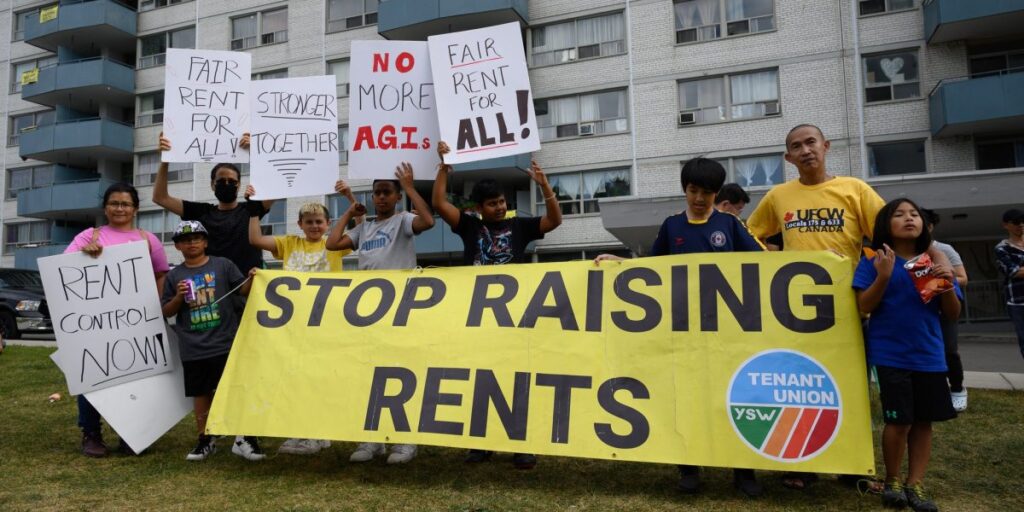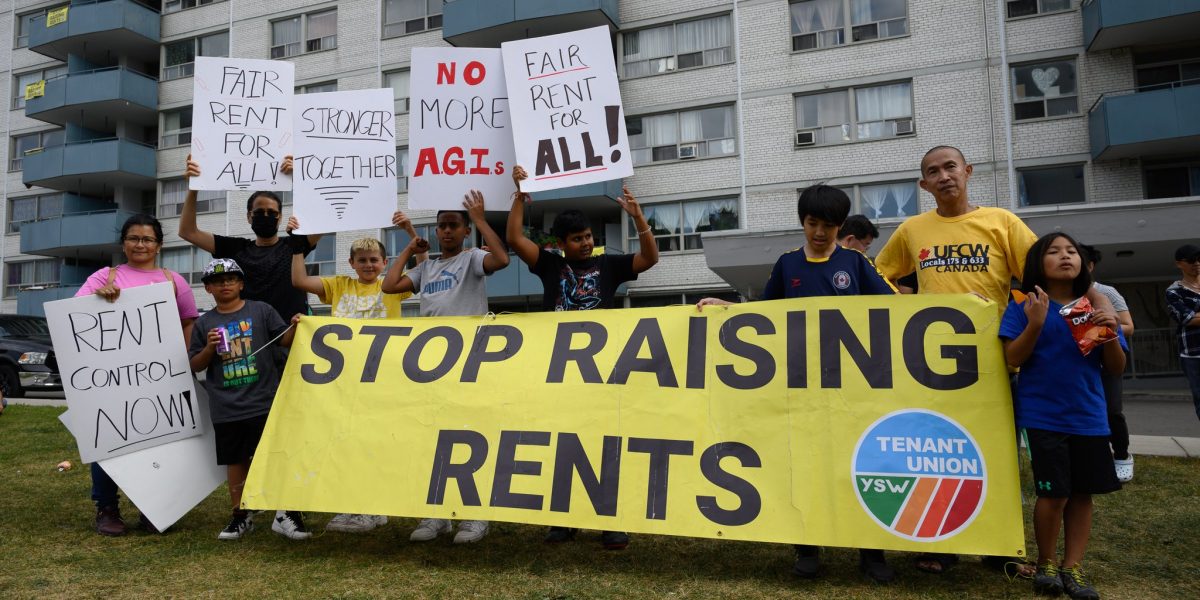How tenants in Toronto have been striking their rent since last summer

On the shores of Lake Ontario in Toronto, Canada, a tenant union is currently testing a method that tenants around the world often dream of: the rent strike. In a neighborhood where predominantly immigrants from Latin America, the Caribbean, and Somalia reside, the union has been organizing tenants for five years, engaging in collective struggles similar to ours to improve local living conditions. Large investors have entered the city in recent years, with Akelius being an example that, after withdrawing from Berlin, expanded significantly in Toronto with capital. Indeed, the housing crisis there is comparable to that in Berlin, making it nearly impossible to find a new apartment.
Despite this, or perhaps because of it, the South-Weston Tenants Union decided last year to initiate the first rent strike in 100 years. In four large buildings, two owned by each landlord, they went on strike last summer due to poor living conditions. This means communicating to landlords: collectively, we will not pay rent until you meet our demands. Enough is enough.
“People often ask first: Is this legal? We ask back: Does that matter?” says Bruno from the union. Like in Germany, rent strikes are not prohibited, but there is also no legal protection for them. In principle, all strikers risk eviction. However, to prevent this, the union ensures that enough tenants participate. “We ask more: How many people are joining? Of course, this only works in large buildings with 200-500 tenants, and we have to ensure that at least 50-70% of people go on strike,” reports Bruno, who himself came to Toronto from Argentina just five years ago. Only when a critical mass participates do landlords have to evaluate whether they can handle the political outcry and pressure to evict 200 tenants. In fact, even with large landlords, it’s not the financial pressure but the political pressure that they intensify through actions and small demonstrations. Media interest was also huge at the beginning. The residents of the four houses currently on rent strike were even more delighted when the first month passed without anyone receiving an eviction notice.
Canadian law stipulates that tenants who do not pay their rent automatically receive a hearing before a housing court with the landlord. The South-Weston Tenants Union takes advantage of this: they delay individual processes through various applications and exert pressure to turn it into a large-scale trial. Thus, an individual process becomes a collective struggle.
The buildings have been on strike for 9 months now, with approximately 50% of the tenants participating. Initial demands have been met, and landlords have just agreed to negotiations. No one has been evicted so far. Every week, Bruno and 20 tenants go to their neighbors, talk to everyone, or even organize an ice cream truck that drives up with a loud siren and distributes free ice cream to all residents. “We do this to break the social distance – it’s crucial to make the strike visible among ourselves,” says Bruno. Many tenants have put up posters on their apartment doors: “I’m fighting for my renter’s rights. Are you joining?” This makes visible what our great strength is, namely that there are many of us. Some people come to a meeting once and say, “Sure, I’ll strike too.” Others have become activists “and now feel like they can take over the world,” says Bruno. So, not only an idea is growing here but also the experience: Together, we can stand up to landlords.
The experiences that Bruno and his neighbors in Toronto are collecting give us courage for our union struggle in Berlin because the situation is similar. In both Toronto and Berlin, there were significant rent strikes in the 1920s, and since then, there have been none. The pressure on tenants is high, and there is no right to a rent strike there or here. It’s time to discuss a roadmap for the first rent strikes in Berlin.

